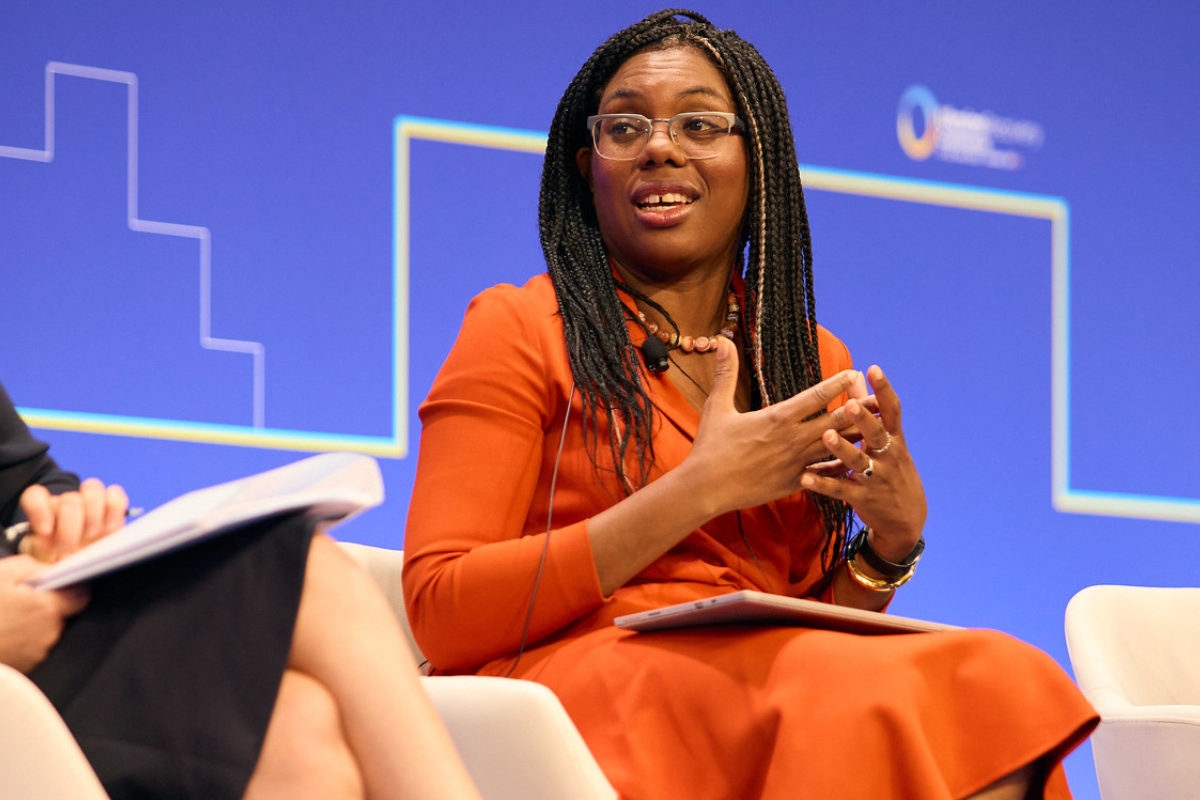
Photo: Foreign, Commonwealth & Development Office via Flickr
Badenoch blocks grant for NI rap trio over political views
A spokesperson for Business and Trade Secretary Kemi Badenoch said it was “hardly surprising” it had overturned Kneecap's funding award as the Northern Irish group is "opposed to the United Kingdom".
The UK government blocked a British Phonographic Industry (BPI) approved funding award for a Northern Irish music group because of their political beliefs, it has been alleged.
Irish-speaking rap trio Kneecap claimed on X that their application to the taxpayer-funded Music Export Growth Scheme (MEGS) for a £15k grant to support a North American tour was approved before being “blocked directly by the British Government". They are now seeking a judicial review of the decision.
A spokesperson for Business and Trade Secretary Kemi Badenoch said it was “hardly surprising” that it had intervened, given that the group was "opposed to the United Kingdom". However, BPI said it was “disappointed” that ministers had overturned the decision of its independent selection board.
READ MORE:
- EXCLUSIVE: ‘Culture of censorship’ as arts workers fear backlash
- ACE warns NPOs of 'political statement' dangers
Kneecap claim the interference was due to a Conservative minister objecting to a poster for their 2019 Farewell to the Union tour featuring cartoons of Boris Johnson and Arlene Foster tied to a rocket. The group, known for politically-charged lyrics and using controversial Troubles-related imagery, urged their fans to “fight censorship".
MEGS, which is administered by the BPI and jointly funded by the Department for Business and Trade (DBT), the Department for Culture, Media & Sport (DCMS) and industry partners, offers grants to small- and medium-sized independent music companies to support British artists' careers in international markets.
“We fully support freedom of speech, but it’s hardly surprising that we don’t want to hand out UK taxpayers’ money to people that oppose the United Kingdom itself,” said a spokesperson for Badenoch.
'Freedom of artistic expression'
The move has sparked concerns about infringing freedom of expression. Alan Lane, Artistic Director for Slung Low theatre company, wrote on X: "I had no idea a belief in the United Kingdom was a prerequisite for arts funding. The consequences for Welsh and Scottish artists especially are huge."
Meanwhile, Patrick Corrigan, Head of Nations and Regions at Amnesty International, said: "Whatever one's views on Kneecap, or indeed on the UK, belief in freedom of artistic expression should be sufficient grounds alone to cause concern at this decision."
Belfast-based legal firm Phoenix Law announced on 9 February it had been instructed by the band to take legal proceedings, posting on social media: "She [Ms Badenoch] has today been put on notice that her decision is unlawful."
In response, a DBT spokesperson said: "We don't comment on actual or threatened [as these are] proceedings."
'It has been their decision alone'
In a statement issued to the Irish Times, a spokesperson for the BPI said: “As the delivery partner of MEGS on behalf of the UK music industry, the BPI is disappointed at the government’s decision not to approve a grant to the band Kneecap after our independent selection board had voted for it as part of the latest round of funding applications.”
“The public funding element of the scheme makes it appropriate for colleagues in government to have a say on any grants awarded by the MEGS Board, and it has been their decision alone to decline the application made by Kneecap’s representatives.
“While it is for government to speak to its rationale for making this particular decision, we firmly believe in the importance of freedom of expression, including artistic expression, and look forward to discussing further with government how any decisions involving potentially controversial matters will be handled in future.”
Since its launch in 2014, MEGS has supported over 300 UK artists – including Rina Sawayama, Kae Tempest and Ezra Collective – with 22 funding rounds of grants of up to £50,000. The scheme's claimed return on investment to the UK economy is nearly £14 for every £1 spent.
On 8 February, Badenoch announced the latest round of MEGS grants totalling £1.6m. In a statement, she said: "I congratulate the successful acts and look forward to seeing them bang the drum for Britain across the globe."
Join the Discussion
You must be logged in to post a comment.